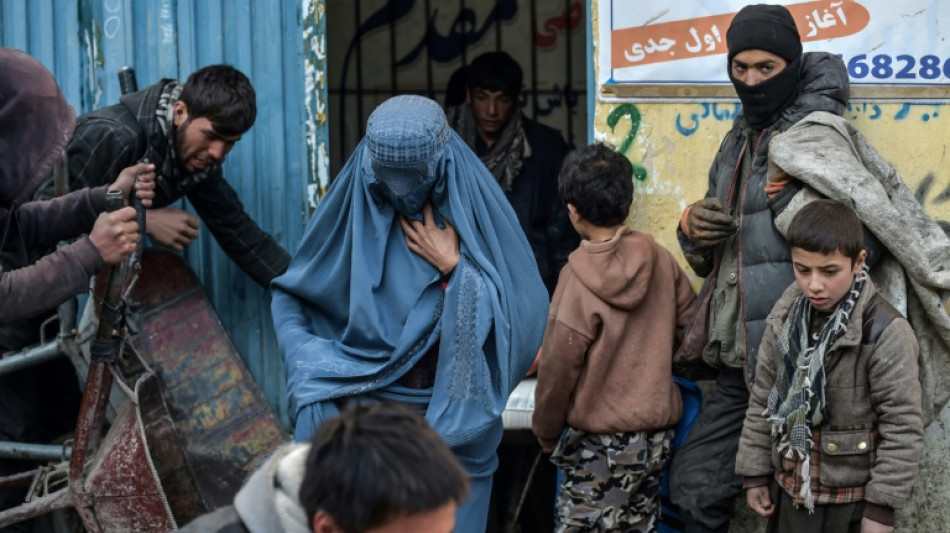
Biden seeks to split Afghan assets between aid and 9/11 victims

President Joe Biden seized $7 billion in assets belonging to the previous Afghan government on Friday with the aim of splitting the funds between victims of the 9/11 attacks and desperately needed aid for post-war Afghanistan.
The unusual move saw the conflicting, highly sensitive issues of a humanitarian tragedy in Afghanistan, the Taliban fight for recognition, and the push for justice from families impacted by the September 11, 2001 attacks collide, with billions of dollars at stake.
The first stage was simple: Biden formally blocked the assets in an executive order signed Friday.
The money -- which a US official said largely stems from foreign assistance once sent to help the now defunct Western-backed Afghan government -- had been stuck in the New York Federal Reserve ever since last year's Taliban victory.
The insurgency, which fought US-led forces for 20 years and now controls the whole country, has not been recognized by the United States or any other Western countries, mostly over its human rights record.
However, with appalling poverty gripping the country after decades of war and the previous government's rampant corruption, Washington is trying to find ways to assist, while side-stepping the Taliban.
The White House said Biden will seek to funnel $3.5 billion of the frozen funds into a humanitarian aid trust "for the benefit of the Afghan people and for Afghanistan's future."
The trust fund will manage the aid in a way that bypasses the Taliban authorities, a senior US official told reporters, countering likely criticism in Washington that the Biden administration is inadvertently boosting its former enemy.
Aside from the new plan, "the United States remains the single largest donor of humanitarian aid in Afghanistan," the senior official said.
More than $516 million has been donated since mid-August last year, the official said. The money is distributed among non-governmental organizations.
- 9/11 victims seek compensation -
The fate of the other $3.5 billion is also complex.
Families of people killed or injured in the 9/11 attacks on New York, the Pentagon and a fourth hijacked airliner that crashed in Pennsylvania have long struggled to find ways to extract compensation from Al-Qaeda and others responsible.
In US lawsuits, groups of victims won default judgements against Al-Qaeda and the Taliban, which hosted the shadowy terrorist group at the time of the attacks, but were unable to collect any money. They will now have the opportunity to sue for access to the frozen Afghan assets.
Those "assets would remain in the United States and are subject to ongoing litigation by US victims of terrorism. Plaintiffs will have a full opportunity to have their claims heard in court," the White House said.
A senior official called the situation "unprecedented."
There are "$7 billion of assets in the United States that are owned by a country where there is no government that we recognize. I think we're acting responsibly to ensure that a portion of that money be used to benefit the people of the country," he said.
And the US plaintiffs related to 9/11 will "have their day in court."
A.Saggese--PV
